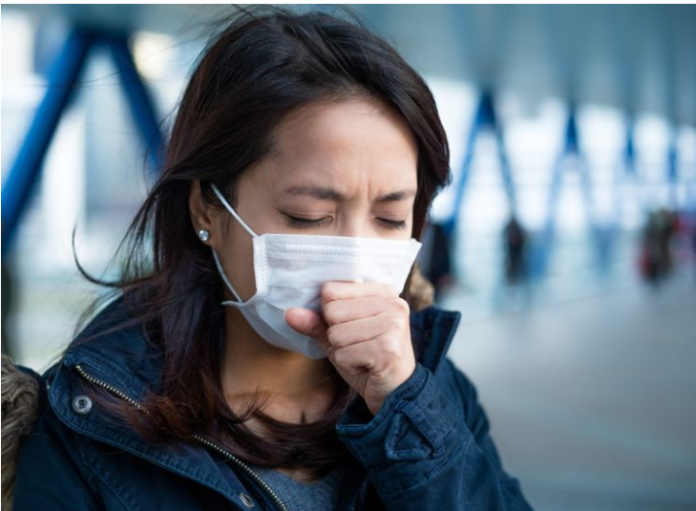Only those in moderate, severe and critical stages need to be hospitalised
Dubai: Should residents who test positive for COVID-19 but are asymptomatic (showing no symptoms) or displaying mild symptoms self-isolate at home?
The Dubai Health Authority (DHA) in sync with the National Emergency Crisis and Disaster Management Authority (NECDMA) has issued new comprehensive circular entitled: “Guidelines for baseline assessment and criteria for discharge and ending isolation of patients with confirmed COVID 19. The circular which is based on guidelines of the Centre for Disease Control, the European Centre for Disease Control and the Public Health England makes recommendations for clinical judgements for doctors managing COVID-19 patients.
“As per this circular, asymptomatic or those with mild symptoms can self-isolate at home. Mild symptoms include cough, sore throat, muscle ache, myalgia, fatigue or headache.”
Patients classified into five categories
Dr Adel Mohammad Yasin Al Sissi
Dr Adel Mohammad Yasin Al Sissi, Chief Medical Officer of Prime Hospital, specialising in Emergency Medicine and head of the COVID-19 taskforce, told Gulf News: “Worldwide hospitals treating COVID-19 patients are full to capacity and in order to manage this from time to time global health bodies like the World Health Organisation (WHO) and the Centre for Disease Control (CDC) are revising the guidelines on management of COVID patients.”
According to the revised guidelines issued by the NECDMA and the Dubai Health Authority there are five categories of COVID-19 patients.
All those who test positive can be divided into: 1. Asymptomatic 2. Mild, 3. Moderate 4. Severe and 5. Critical.
When a patient gets a positive test result he has to watch his symptoms and be in touch with the toll free number of the health authority.
Dr Al Sisi explained: “Categories 3, 4 and 5 must be hospitalised. Symptoms can range from high fever, pneumonia, chest congestion, difficulty in breathing among other severe signs where the patient requires oxygen support. These patients are admitted to the isolation wards for COVID-19 and provided treatment as per the protocols provided by the federal and local health authorities.”
Category 1 and 2 patients can exercise their choice
The category 1, patients who are asymptomatic have two choices. Either they can self-isolate at home or check into quarantine hotel room. All major hospitals have booked several rooms in adjacent hotels to handle asymptomatic or mild symptom patients said Dr Al Sisi.
Next, the category 2 ie the mild symptom patients too can choose to isolate at home but it depends on which sub category they belong to, Dr Al Sisi explained: “The mild symptom category is further divided into two sub-sections – those who have mild symptoms but no underlying co morbidity like diabetes, obesity or hypertension and those with mild symptoms but with any of the co morbidities or advanced age. So asymptomatic are free to choose to isolate at home or hospital, while those with mild symptoms but with co morbidities are advised to check into the hotel rooms of any hospital.”
For instance, the Prime Hospital has taken 260 rooms in an adjacent hotel, which is occupied by asymptomatic and mild symptoms’ patients. “We have doctors and nurses stationed here and we monitor the patients, check their temperature and other vitals, provide asymptomatic treatment like cough syrup, prophylactics and nasal decongestants as and when the need arises,” explained Dr Al Sisi Expenses of all COVID-19 patients whether in hospitals, hotel quarantines or field hospitals are being covered by the mandatory health insurance cover, the DHA and the respective hospital in a collaborative manner, said Dr Al Sisi.
Hospitals, hotel quarantines and field hospitals
Elaborating on the manner in which the health care centres had quickly being segmented Dr Al Sisi explained, “Positive patients who are either moderate, severe or critical must be admitted to hospitals equipped with critical care facilities, moderate patients are also getting treatment at field hospitals and those with mild symptoms have access to hotel quarantines. In hotels as, I said earlier, asymptomatic patients can chose to stay but they have the option of self-isolating at home.
From rising numbers to plateau, to bending the curve to zero incidence
Dr Al Sisi added that the excellent healthcare facilities and efficient precautionary steps lead protocol based management had helped in not only containing the cases but also keeping the death rate low. “We have seen that the Sars-CoV-2 virus has a definite pattern. There is an ascending movement as numbers of positive cases rise and rise, then there is a peak, after which there is plateau and later a bending of the curve. Due to the government’s efficient management we are in the plateau stage with numbers hovering in the range of 450-500.
“While we cannot say when, but if we continue in the same manner we will be able to bend the curve and eventually only those in hospitals and field hospitals receiving treatment will be left, and we will be able to reach to a logical culmination.”
Dr Al Sisi added that as per new guidelines once a patient tests negative in two consecutive tests, he is declared recovered and no longer requires to self quarantine at home for 14 days. “Having tested negative means that the patient has generated antibodies to combat the virus. He can give his blood for plasma therapy for other critical patients, so he is not required to quarantine himself for 14 days.”
Latest National guideline
A new national guideline issued by DHA states that even stable COVID-19 patients in hospital can be discharged and allowed to go home without testing negative provided they fulfil a few inclusion and exclusion criteria. Dr Ahmed Abdel Hamid, specialist in Internal Medicine, Medcare Women’s and Children hospital explained, “The new guideline issued on May 3 states that stable patients who have been fever free for three days, show remarked improvement in their chest X-rays, who no longer are dependent on hospital care for any drips or injection and are showing no symptoms can be discharged and sent home with an undertaking that they will be under home quarantine for seven days.
“Such patients have to sign an undertaking that says they are obligated to strictly observe the self-quarantine and DHA can pay a visit to inspect or keep in close contact over phone with such patients to constantly monitor such patients. The patients in this category exclude people above 60 years, patients with co-morbidities such as diabetes, hypertension etc, patient requiring psychiatric care and pregnant women all of who require special care.
“If a patient states that he or she is unable to observe the 7 day quarantine because of being in a shared accommodation then such patients are shifted from the hospitals to the isolation buildings which have currently been set up in hotels.”



